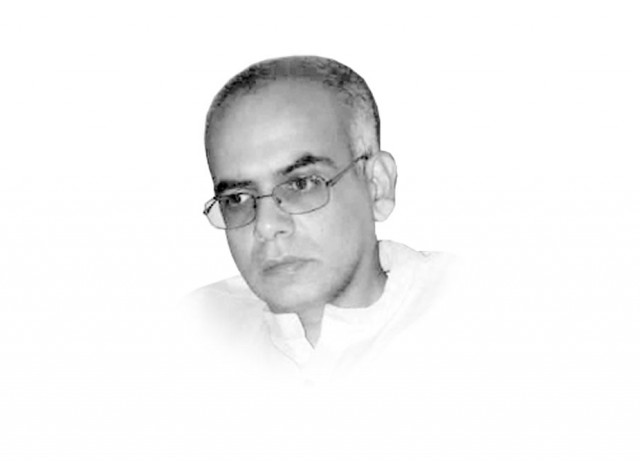The unfolding human tragedy in Afghanistan
Afghanistan is a source of instability for not only Pakistan but also for other neighbouring states in the region.

It is a shame that the lives of ordinary Afghans today remain so difficult despite having weathered decades of conflict, including twenty years of US-led NATO occupation. While life was not easy under foreign occupation, the state of current affairs is worse under the oppressive reign of the still ostracised Taliban.
Staggering amounts of money have been spent in Afghanistan since 9/11. However, the bulk of this funding was used to lubricate the military-industrial complex within western nations, and to sustain their military forces in the country. Trying to train an Afghan national army was also another major priority for western governments, and yet this army remained unable to offer any meaningful resistance to the Taliban, who seized the country as soon as NATO troops pulled out.
Besides the staggering sums of money spent in the name of securing Afghanistan, sizeable western resources were used for nation-building as well. However, even this process of turning Afghanistan into a modern nation was led by international agencies and their development firms which charged high fees but remained unable to put in place responsive governance and social delivery mechanisms which could be sustained without external support.
Today, many struggling Afghans remain dependent on humanitarian assistance which is now quite meager due to international reluctance to support the Taliban regime, and due to shifting global priorities which have placed the plight of Afghans on the backburner.
As a result, the men, women and children of Afghanistan are struggling to survive. According to UN estimates, around half of Afghanistan currently faces severe hunger, including 3.2 million children under five years, who are suffering from acute malnutrition. Afghanistan is also listed amongst nations with the highest rates of maternal and infant mortality due to lack of pre- and post-natal health care facilities.
While conflict has decreased, the Islamic State-Khorasan (ISK) is trying to resist the Taliban by trying to portray itself as a more legitimate Islamic resistance movement. Fearing attrition of their own hardline elements to ISK is considered a major factor why the Taliban shun political compromise and remain reluctant to provide civil liberties to the citizenry, especially to women and girls. Similarly, the Taliban are hesitant to act against other Islamic militant groups such as the TTP, as they do not want this group to join ISK either. The fear of being discredited and losing legitimacy amongst the TTP has led the Taliban to spoil terms with Pakistan, which has reacted by sending back many Afghan refugees and decreasing cross-border trade.
Afghanistan is a source of instability for not only Pakistan but also for other neighbouring states in the region. The potential reconsolidation of ISK and Al-Qaeda continues to irk western nations.
Afghanistan is confronting many serious challenges today, including increasing water scarcity and other climate related threats. The Taliban regime seems ill-equipped to contend with these problems. The Taliban's model of governance is myopic and intolerant. It inflicts harsh penalties for defiance. The Taliban may have lessened corruption, but they are hardly responsive to the needs of the citizenry. While opium cultivation has been banned again, farmers are not being supported to grow alternative crops, and they are increasingly desperate.
Neither Iran nor Pakistan seems willing to accommodate another wave of refugee inflows. Afghans who can muster some resources are thus trying to flee further afield, legally or illegally.
The Taliban seem in no rush to form a more representative government which may facilitate their official recognition within the comity of nations. In the absence of a functional international mechanism to engage with Afghanistan, powerful states such as China and Russia have made some inroads into Afghanistan. But these newly forged bilateral relationships with the Taliban remain transactional and will not pay much heed to Taliban's human rights record or governance credentials.














COMMENTS
Comments are moderated and generally will be posted if they are on-topic and not abusive.
For more information, please see our Comments FAQ